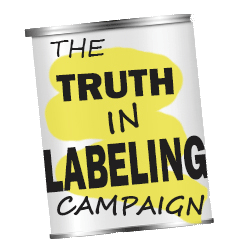BY FDA REGULATIONS found in the Federal Food, Drug, and Cosmetic Act and in the FDA Code of Federal Regulations, the use of a food substance may be GRAS (generally recognized as safe) either through scientific procedures or, for a substance used in food before 1958, through experience based on common use
In short, to be designated FDA GRAS, an ingredient must be:
1) Tested for safety using scientific procedures, or
2) Known to be safe through experience based on common use in food prior to January 1958.
Monosodium glutamate (MSG) does not meet that standard and therefore does not meet the FDA requirements for GRAS status.
The MSG in use today has never been tested for safety. Although the glutamate industry has turned out badly flawed studies on the “safety” of MSG (using toxic material in placebos, for example), no one outside of the glutamate industry would ever claim that any of those studies qualified as “scientific” procedures.
The MSG in use today, made with glutamate created by genetically modified bacteria that excrete glutamate through their cell walls, was only invented in 1957, allowing no time to demonstrate safe use through experience (based on common use in food) prior to 1958. The MSG in use today could not have been grandfathered GRAS in 1958 because it didn’t exist prior to 1957.
In 1969, it was first observed that manufactured free glutamic acid, the essential ingredient in MSG, is an excitotoxic amino acid. When glutamate is ingested in controlled quantities, it is essential to normal function. But when ingested in excess, it causes brain damage, leading to a variety of abnormalities.
Prior to 1957, when glutamate was produced by extracting it from protein, there was not enough manufactured free glutamate added in food to cause glutamate to become excitotoxic. That changed in 1957 after glutamate came to be produced in virtually unlimited quantities.
Resources
Sections 201(s) and 409 of the Federal Food, Drug, and Cosmetic Act
FDA’s implementing regulations in the Code of Federal Regulations, 21 CFR 170.3, 21 CFR 170.30, and 21 CFR 170.30(b
If you have questions or comments, we’d love to hear from you. If you have hints for others on how to avoid exposure to MfG, send them along, too, and we’ll put them up on Facebook. Or you can reach us at questionsaboutmsg@gmail.com and follow us on Twitter @truthlabeling.


